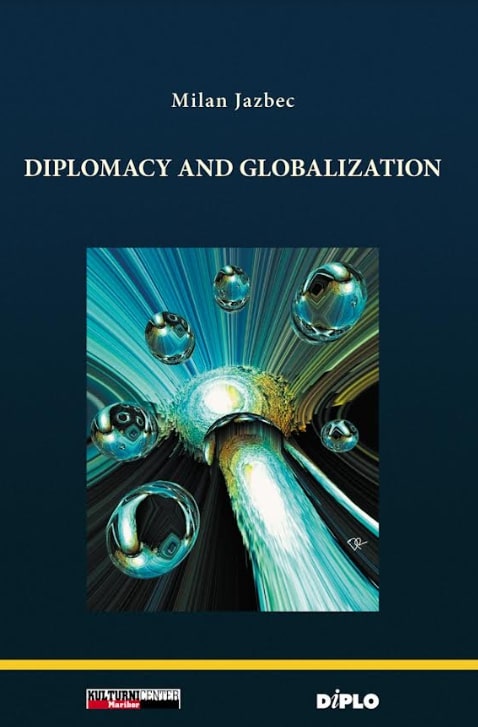This unique monograph, which is a selection of his papers from the period 2006-2022, discusses the interaction between diplomacy and globalization that has emerged with the end of the previous century. Immense structural changes of the international community and by far not less dramatic advancement of media and transport technology produced a stream of transformation that three decades later resulted in the change of the paradigm and led globalization to its advanced phase of digitalization. By the author’s belief, diplomacy is a complex, multilayered social process of managing relations between states, which has millennia long tradition. It was developed through four main phases (early, classical, modern and postmodern) and has always been in a function of a concrete social and historical situation as well as dependent on it. Furthermore, it has always been also determined by social and functional proximity. Diplomacy is a highly complex social term and phenomenon.
The book is structured in three parts: contemplating of the field (theorizing diplomacy and its historical, social as well as international context); topics and aspects (discussing selected topics like diplomatic functions in the 21. century, the philosophy of the preambles of Vienna Conventions on diplomatic and on consular relations, equal opportunities in the Slovene diplomacy), and diplomacy and literature (understanding and appearance of diplomacy in selected classical novels). The introductory text discusses the evolution of diplomacy and social sciences, where the author presents his favorite ten works on diplomacy and the way diplomacy was researched and dealt with by social sciences.
Diplomacy and Globalisation shows the reader the undeniable intertwinement of globalisation and diplomacy and their co-dependence. On one hand, diplomacy is certainly one of the strongest pillars of the world community, on the other hand, however, it is also one of the most flexible ones with a feature of an incredibly fast adaptability to the ever-changing relations within the global society.
Hence, this book is by large a compilation of works expressed and shaped by the diplomatic point of view that spreads towards the events and protagonists, moving confidently through the symbolism and representation, pointing towards the lessons that can be learned. It contributes to the social sciences in general but in particular to the not so much explored field of the sociology of diplomacy as an effort to theorize and understand diplomacy within the sociological context. In that frame, the author is focusing on the social context, development, and operation of diplomacy and contributes greatly to the development of this aspect of diplomacy. In that sense, he generalizes the findings and articulates them into a new understanding. The findings are put systematically and structurally, and that makes the book useful learning curricula for graduate and postgraduate students, or anyone who wants to get inside of diplomacy, international law, and international relations.
The last part of the book is dedicated to “Diplomacy and Literature”, which deals with six well-known literary works whose plot and main characters contain important elements of the diplomatic profession. The author analyses them through diplomatic glasses and concludes that diplomacy is an important part of the plot, making the text more reliable, while offering the reader at the same time additional opportunities to get acquainted with diplomacy in various contexts. Reading novels with a focus on their diplomatic aspects is a welcome simulation activity for professional diplomats as well. Here, too, Jazbec masterfully presents his poetic-writing talent, an erudite in the ranks of Slovenian diplomacy, where he spent the major part of his professional carrier.
Diplomacy and Globalisation is available as a printed edition (published by Kulturni center Maribor), and as an e-book (published by DiploFoundation)


